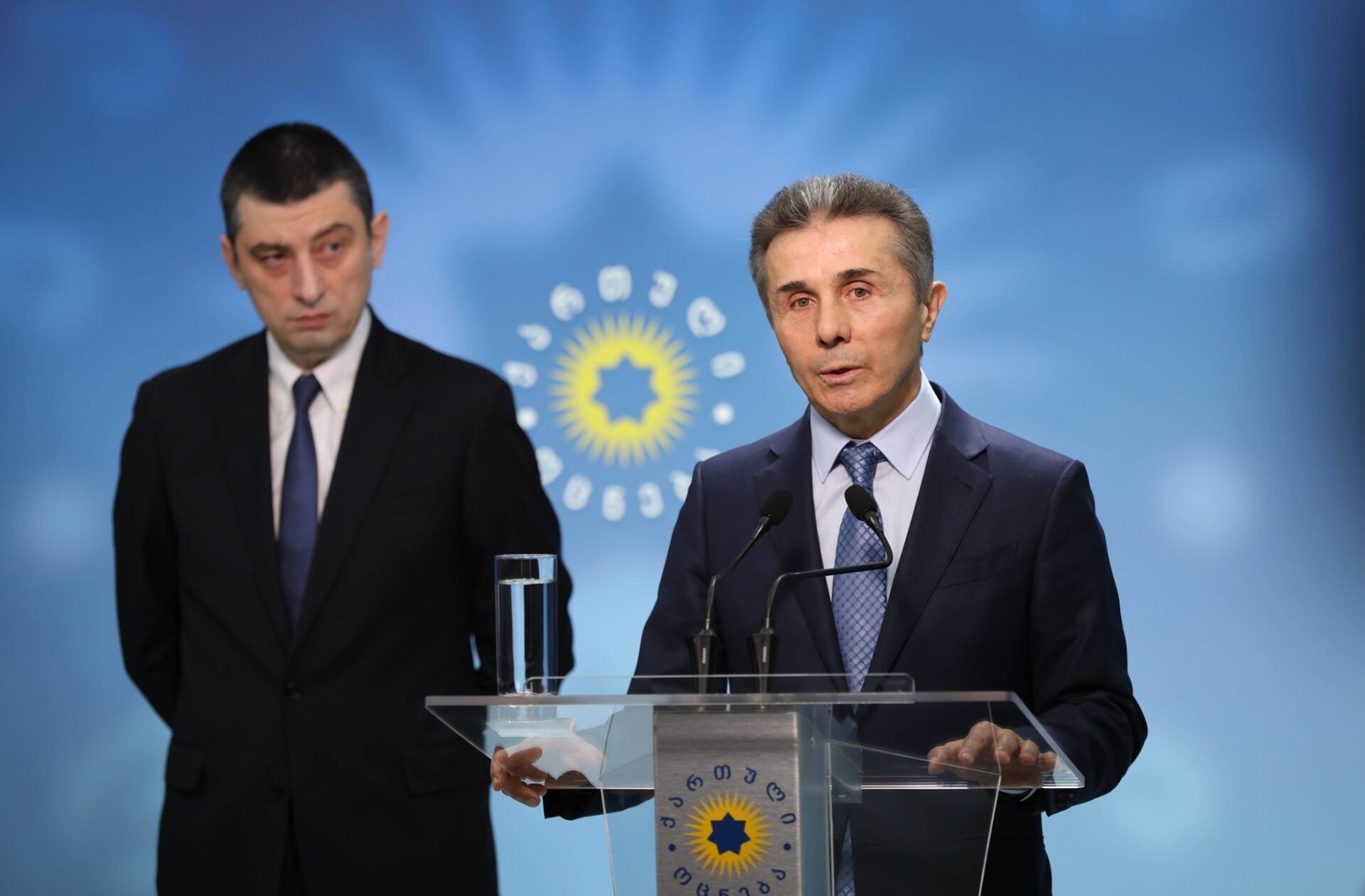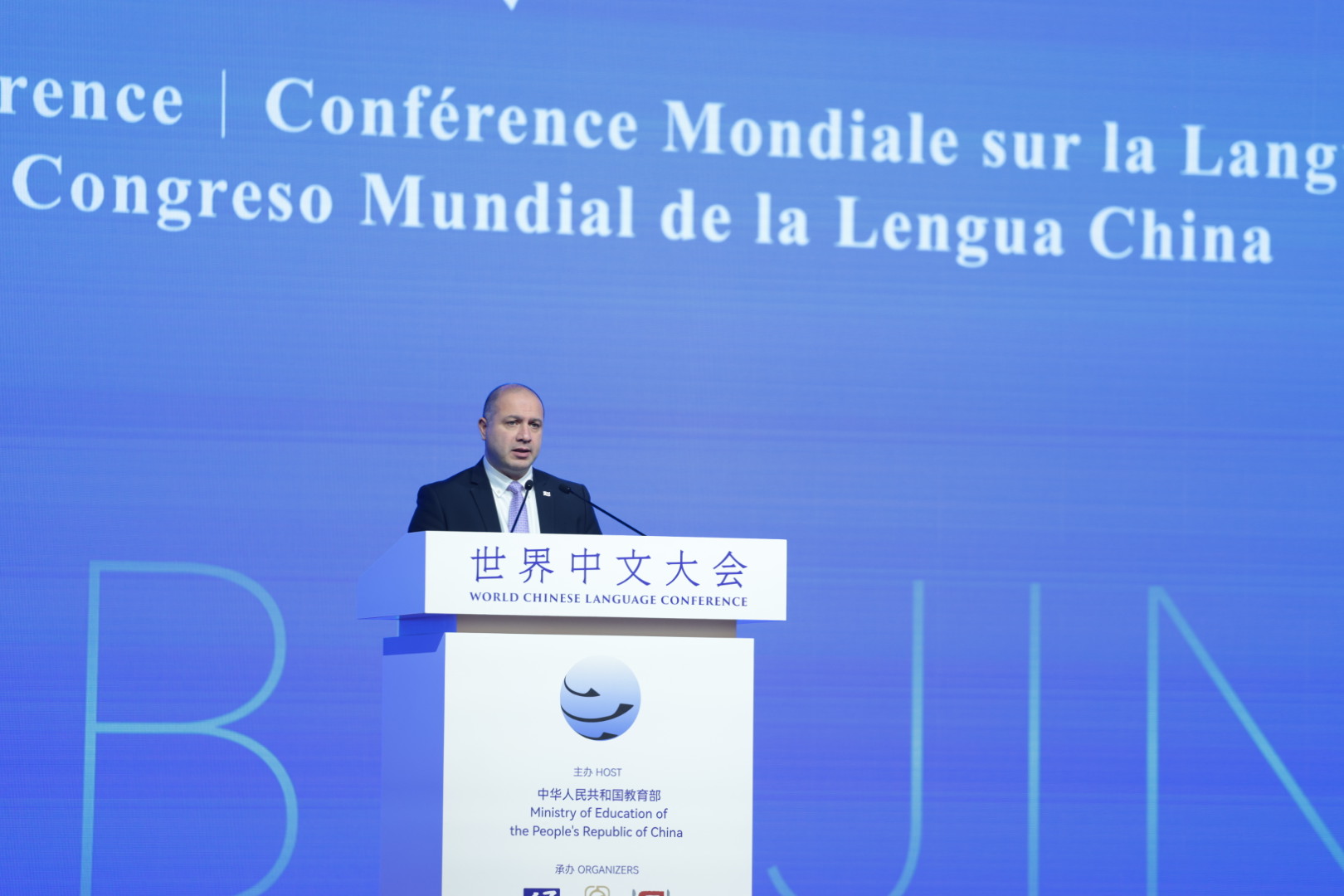
Former Embattled Interior Minister Giorgi Gakharia Named New Prime Minister of Georgia
Former Embattled Interior Minister Giorgi Gakharia Named New Prime Minister of Georgia
The Georgian parliament voted, on September 8, in favor of naming former minister of internal affairs Giorgi Gakharia the country’s new prime minister. Ninety-nine members of parliament (MP) took part in the motion, and 98 cast their vote in favor of Gakharia’s government, with no votes against. Opposition factions United National Movement (UNM) and European Georgia (EG) boycotted the session (Agenda, September 8).
During the hearings in the national legislature, UNM and EG accused Minister Gakharia of cruelly dispersing a protest rally in downtown Tbilisi, on June 20. On that day, 240 people, including 80 police officers, were injured as a result of the authorities’ crackdown on the demonstrators, who were out in the streets expressing their anger at the government’s relationship with Moscow. Two demonstrators, including a young girl, lost an eye from rubber bullets fired into the crowd (see EDM, June 24).
After the June 20 crackdown, the opposition demanded the resignation of Gakharia from the post of minister of the interior. But the chairperson of the ruling Georgian Dream (GD) party, billionaire Bidzina Ivanishvili, instead nominated him for the top government post (Civil.ge, September 3). Gakharia is associated not only with the bloody events on Rustaveli Avenue this past summer, but also with a police raid on Tbilisi nightclubs last year (see EDM, May 29, 2018) as well as spring 2019 clashes in Pankisi Gorge involving the local ethnic-Chechen population (see EDM, April 29).
Salome Samadashvili, a UNM MP and a former Georgian ambassador to the European Union, said, in an interview with this author, that she considers the GD leader’s decision “a challenge to the whole Georgian community.” She explained, “Ivanishvili appoints his closest employees to the main posts in his government to win next year’s parliamentary elections.” Samadashvili further underscored that the GD’s former prime minister and former minister of internal affairs Irakli Garibashvili has been named the next minister of defense; and Ivanishvili’s one-time bodyguard, Vakhtang Gomelauri, will head the ministry of interior (Author’s interview, September 11).
Although the ruling party had no problems voting in Giorgi Gakharia’s “new” Cabinet of Ministers, the plenary session of the parliament was held against the backdrop of a noisy protest by several youth opposition organizations. In particular, participants of the so-called “Anti-Occupation Rally” and the movement “It’s a Shame” led a small flock of live sheep to the parliament building. The ruling GD party members, the protesters declared, are fulfilling all of Ivanishvili’s requests and are as humble and submissive toward him “as sheep” (Radiotavisupleba.ge, September 8).
According to the current constitution, which made Georgia a parliamentary republic, Gakharia will now hold real power in the country as head of government. Speaking before the legislature voted on him and his proposed Cabinet, Gakharia stated that he considers Abkhazia and South Ossetia to be “occupied by Russia.” “This means that 20 percent of the development potential of our country is occupied,” the new prime minister said. Nevertheless, Gakharia believes Georgia “should use all instruments except the military” to restore territorial integrity and must be guided by a “cold mind” and not emotions in its relations with the Russian Federation (Agenda, September 8).
In foreign policy, the new prime minister intends to maintain Georgia’s course toward integration with the European Union and the North Atlantic Treaty Organization (NATO). And in the domestic sphere, his stated priorities will be developing the country’s education system and the agricultural sector. Gakharia considers unemployment to be Georgia’s main problem (Georgia Today, September 9). Though it is worth noting that, in June, he called associates of former president Mikheil Saakashvili and his UNM party a “destructive opposition” (Agenda, July 21).
Further hints of the potential foreign policy direction of Gakharia’s government may perhaps also be gleaned from the new minister of defense, Irakli Garibashvili. While speaking before the parliament, he warned against unreasonable expectations regarding the prospect of Georgia joining NATO, so as to avoid “the same disappointment as in 2008” (1tv.ge, September 5).
Georgian political analyst Ghia Nodia, of Ilia State University, told this author that by appointing Gakharia as prime minister, Ivanishvili “is trying to demonstrate to the opposition, that he is not afraid of the protests.” Nodia believes that the second motive for appointing Gakharia is connected with the GD chairperson’s desire to “continue the game with Moscow” after Russia imposed sanctions against Georgia, blocking direct flights (Author’s interview, September 11).
Giorgi Gakharia graduated from the Faculty of History of Tbilisi State University, in 1994, and then lived in Moscow for an extended period. He studied at Moscow State University, where he earned a Master’s degree in Political Science (1999) and a Master’s in Business Management (2004). He later headed the East European branch of the German airline Lufthansa (2008–2013).
After the Georgian Dream party came to power, Gakharia, who had worked in various structures of Ivanishvili’s business empire, served as business ombudsman in the government, secretary of the Security Council, minister of the economy (2016), and finally minister of internal affairs (2017–September 2019), before being named prime minister last week. He is considered perhaps the most influential figure on Ivanishvili’s team (Kommersant, September 3)
Georgian Institute of Public Affairs (GIPA) professor Tornike Sharashenidze does not agree with the opposition’s narrative that Ivanishvili needs Gakharia for a “secret deal with Moscow.” “Ivanishvili is not pro-Russian or pro-Western. He is only pro-Ivanishvili,” Sharashenidze stressed. According to the expert, Gakharia’s appointment is connected with the upcoming parliamentary elections, scheduled for October 2020: “Giorgi Gakharia may not be the best prime minister to be found in Georgia, but he is the strongest person within the billionaire’s entire team. The previous prime minister, Mamuka Bakhtadze, was very weak and could not help the ruling Georgian Dream party in future elections,” Professor Sharashenidze argued (Author’s interview, September 11).
Meanwhile, the government is worried about the impact opposition media may have on the upcoming elections, as demonstrated by the authorities’ heavy-handed attempts to shut down the well-known Rustavi 2 television channel via a proxy buyer (Civil.ge, July 19). Yet, several days ago, a team of former Rustavi 2 journalists, who quit in protest at the new owner’s interference in editorial policy, reappeared on Georgian TV, broadcasting from a new frequency (Mediachecker.ge, September 9). Their new station, named Main Television Channel (Mtavari Arkhi), will carry all the information programs, journalists and talk shows that had previously aired on Rustavi 2 (Civil.ge, September 9).
The head of the Main Channel, Nika Guaramia, himself calls the television station the “opposition.” He believes the channel will play a key role in the 2020 elections (Author’s interview, September 2).


